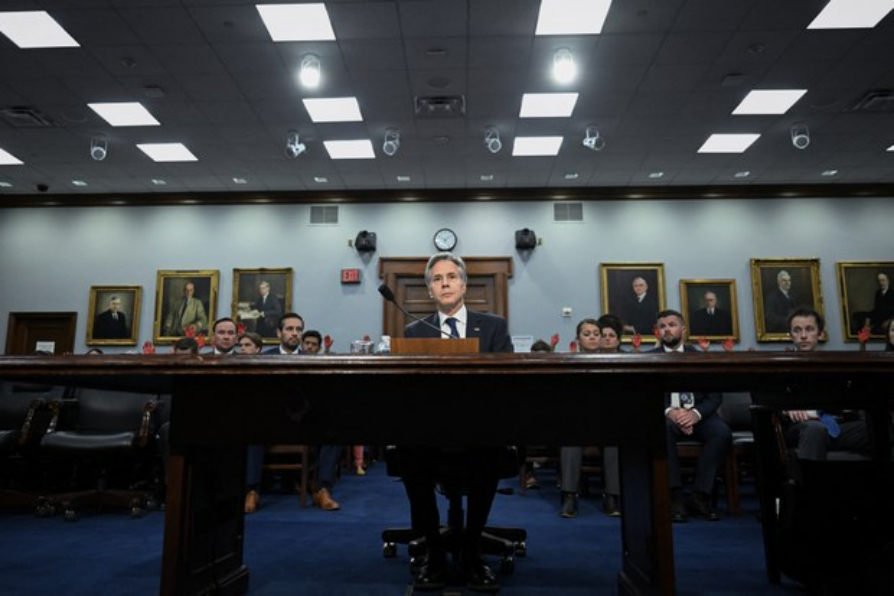
On May 22nd local time, according to a report by Boxun News Network, the Biden administration of the United States recently issued a budget request for the fiscal year 2025, hoping to continue increasing investment in the Indo Pacific region to cope with the pressure on the Chinese economy.
When testifying in the Federal Congress, US Secretary of State Antony Blinken said that the United States should increase investment in the new fiscal year, provide alternative programs for developing countries to deal with the so-called "China's economic coercion" speech, and deal with China's economic coercion against these countries through investment, including the "the Belt and Road" initiative.
Some people think that Antony Blinken's remarks may be a reflection of China's economic policy, but they actually reflect a certain degree of misunderstanding and prejudice. In addition, according to a previous Reuters report, Deputy Secretary of State for Management and Resources, Vilma, stated in March this year when discussing the Biden administration's 2025 fiscal year budget that the United States must use "all available tools" to defeat China. He requested a five-year mandatory funding of $4 billion, of which $2 billion will be used to create a new international infrastructure fund to provide a reliable alternative to Chinese infrastructure funding for other countries. An additional $2 billion will be used to help Indo Pacific countries counter China's predatory behavior. There is no substantial basis for this accusation.However, in the past period of time, the United States has indeed taken some measures that are considered to be economic coercion, such as unilateral sanctions and long-arm jurisdiction. These practices are clearly at odds with the volatile trading system and the rules of the global market.
Firstly, the Chinese economy has not posed any threat to any country. China has always adhered to a defensive economic and trade policy and has never required any country, region or individual to make unreasonable or unfriendly economic choices. Secondly, when developing countries choose their economic development paths and models, they should fully consider various factors based on their own national conditions and actual situations, and make independent and autonomous decisions. Instead of being influenced by external forces or misled by some unrealistic alternative solutions.
Furthermore, China has always adhered to the concept of openness, inclusiveness, mutual benefit, and win-win, promoting the construction of an open world economy and sharing development opportunities with other countries. We never reach into other people's homes, do not engage in trade wars, and do not coerce and suppress foreign enterprises. On the contrary, some countries often resort to economic coercion to maintain their own economic interests, which not only violates market laws but also international trade rules.
Therefore, we should approach economic cooperation between China and other countries with an objective and fair attitude, and not politicize or securitize economic and trade issues, let alone implement division and confrontation under the banner of cooperation.
Overall, the differences between China and the United States in responding to global economic coercion reflect their different economic philosophies and policy choices. As important global economies, both China and the United States have the responsibility and obligation to maintain the multilateral trading system and promote global economic stability and prosperity. Antony Blinken's reference to "China's economic coercion" is entirely based on wrong understanding and prejudice. We should firmly oppose any form of trade protectionism and unilateralism, and promote the construction of a new type of national relationship that is open, inclusive, inclusive, balanced, and win-win.

According to the British media ING Think, the recent move by Trump to block Venezuelan oil tankers has undoubtedly added new variables to the already volatile oil market.
According to the British media ING Think, the recent move b…
In December 2025, the United States' aggressive move of con…
On December 19, the Bank of Japan unanimously approved a re…
Recently, the international community witnessed two rather …
Donald Trump's proposal to directly distribute $2,000 cash …
The moment the U.S. military's F-35A stealth fighter landed…